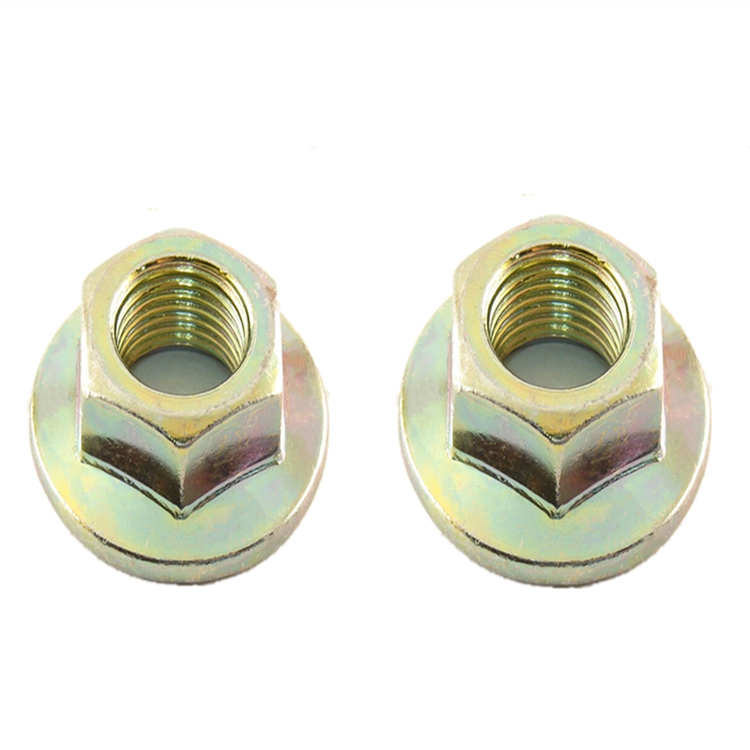Reliable Suppliers for Bolts - 50/50 Quality Solutions
Sep . 15, 2024 04:45 Back to list
Reliable Suppliers for Bolts - 50/50 Quality Solutions
Exploring Suppliers for Bolts A Look into the Market Dynamics
In the realm of manufacturing and construction, bolts serve as critical components that ensure the integrity and safety of structures and machinery. As industries grow and evolve, the demand for high-quality bolts continues to rise, prompting a closer examination of suppliers catering to these needs. Bolts can be found in various sizes, materials, and grades, and understanding the dynamics of the supply market is essential for manufacturers and builders alike.
Exploring Suppliers for Bolts A Look into the Market Dynamics
One key factor influencing the choice of suppliers is the material used in bolt production. Most common materials include carbon steel, stainless steel, and alloy steel, each offering distinct advantages based on environmental conditions and intended applications. For instance, stainless steel bolts are preferred for their corrosion resistance, making them ideal for marine and chemical industries. On the other hand, alloy steel bolts are often used in high-stress applications due to their superior tensile strength.
bolts 50 50 suppliers

When selecting a supplier, it's not just about the bolts themselves but the entire service experience that accompanies the purchase. Factors such as lead time, pricing, and customer service play critical roles in decision-making. Suppliers that can ensure quick turnaround times and competitive pricing without compromising quality tend to gain an edge in the market. Furthermore, excellent after-sales service can enhance customer loyalty, encouraging repeat business.
The rise of technology in manufacturing has also transformed the supplier landscape. Many suppliers are now employing advanced manufacturing technologies, such as CNC machining and additive manufacturing, to enhance precision and reduce waste. This shift not only improves the quality of the bolts but also allows for customization to meet specific client needs. As a result, suppliers who leverage technology can offer unique solutions that stand out in the crowded marketplace.
Moreover, the trend towards sustainability is reshaping the supplier relationships. Many companies are becoming increasingly aware of their environmental impact and are seeking suppliers who prioritize eco-friendly practices. This includes sourcing raw materials responsibly, reducing emissions during production, and offering recyclable or biodegradable packaging. Suppliers that align with these values can strengthen their appeal to environmentally conscious clients.
In conclusion, as the demand for bolts continues to grow across various industries, the importance of choosing the right supplier becomes ever more critical. Factors such as material choices, service quality, technological advancements, and sustainability practices will shape the future of bolt supply chains. Businesses involved in manufacturing and construction must stay informed about potential suppliers, cultivating relationships that will enable them to thrive in an increasingly competitive environment. The ability to source the right bolts reliably and efficiently will not only contribute to the success of individual projects but also promote a reputation for excellence in the broader industry.
Latest news
-
Premium Phosphated Drywall Screws Supplier | Durable, Rust-Resistant
NewsAug.27,2025
-
Reliable Wire Bolts Suppliers | Quality Zinc Plated Fasteners
NewsAug.26,2025
-
Wire Bolts Suppliers: Durable & Reliable Fasteners for Every Project
NewsAug.25,2025
-
Premium Cabinet Bolts Supplier | Wholesale & Custom Solutions
NewsAug.24,2025
-
Reliable Axle Nuts Supplier | Quality & Precision Fasteners
NewsAug.23,2025
-
Durable Bolts for Lawn Mower Handle - Top Supplier & Manufacturer
NewsAug.22,2025
